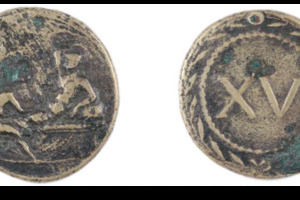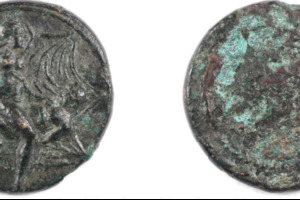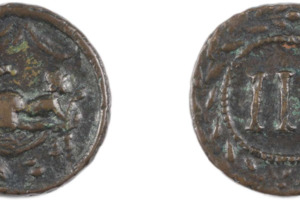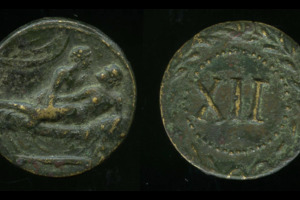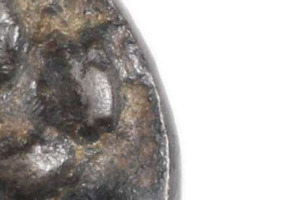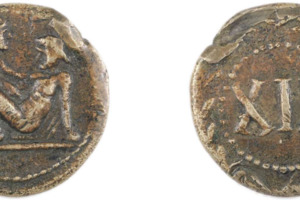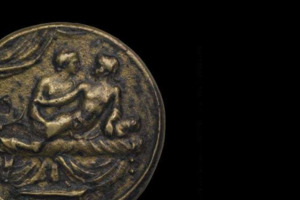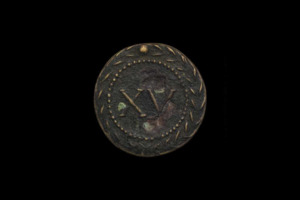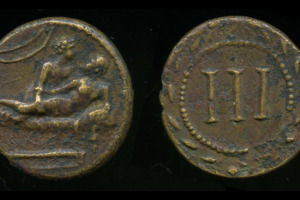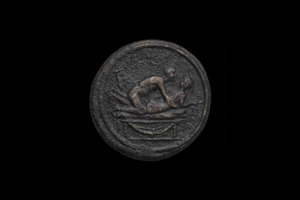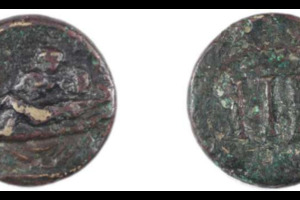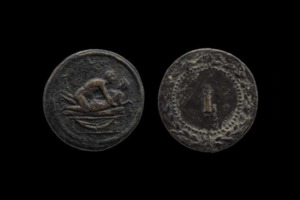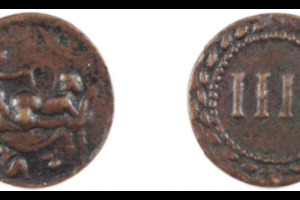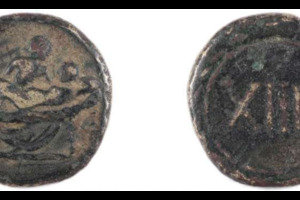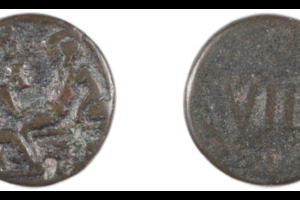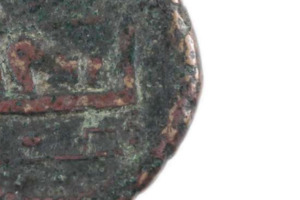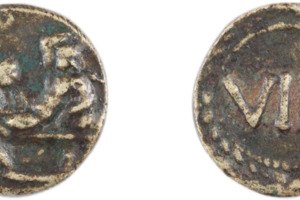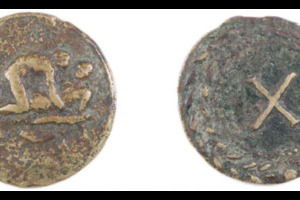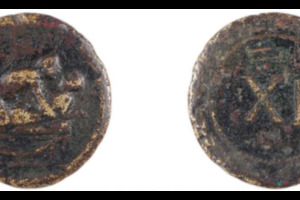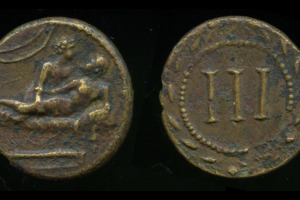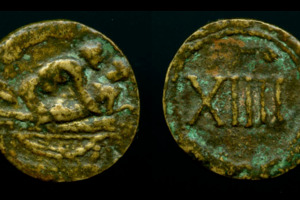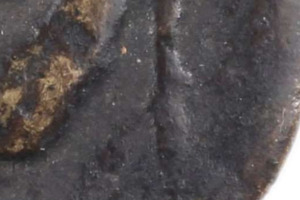Spintriae
Spintria (Latin: spintria, also known as brothel token) – a small ancient Roman token made of silver or bronze, resembling a coin and depicting sexual acts or symbols. In Russian numismatics, this term is sometimes used to refer to any ancient tokens and coins with erotic imagery.
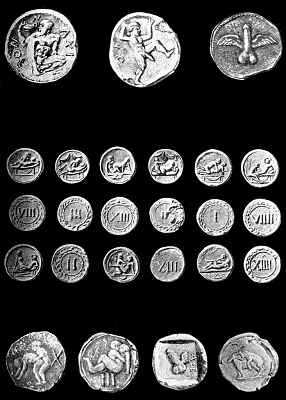 Spintriae found in Pompeii, 1st century AD.
Spintriae found in Pompeii, 1st century AD.
Most spintriae were minted in bronze and feature erotic scenes. Typically, they depict people in various sexual positions, naked men, winged phalluses, or copulating animals. The most common motif is a man and a woman engaged in sexual intercourse. The reverse side of the token usually bears different Roman numerals (from I to XX), the exact meaning of which remains uncertain.
Similar items made from other materials also existed. A few such items made of terracotta and bone were found during the excavation of Pompeii. In general, various tokens were widely used in Rome as entry tickets for spectacles, lottery tickets, and so on.
Despite the widely accepted theory that these tokens were used as a form of payment in brothels, other hypotheses suggest that spintriae might have been used as gaming tokens or possibly issued during the reign of Tiberius to discredit imperial authority. Suetonius uses the word spintriae to also refer to bisexuals, a passion attributed to Tiberius on Capri. Suetonius also mentions that Caligula expelled them from Rome and Italy; moreover, the derogatory nickname “Spintria” was given to Aulus Vitellius: "He spent his childhood and early youth on Capri among the favorites of Emperor Tiberius and for life retained the shameful nickname Spintria; it was even thought that his facial beauty was the cause and beginning of his father's advancement" (Suetonius. Vitellius, 3:3).
Related topics
Erotica and Sex in Ancient Rome, Women in Ancient Rome, Men's Clothing in Ancient Rome, Hetaira
